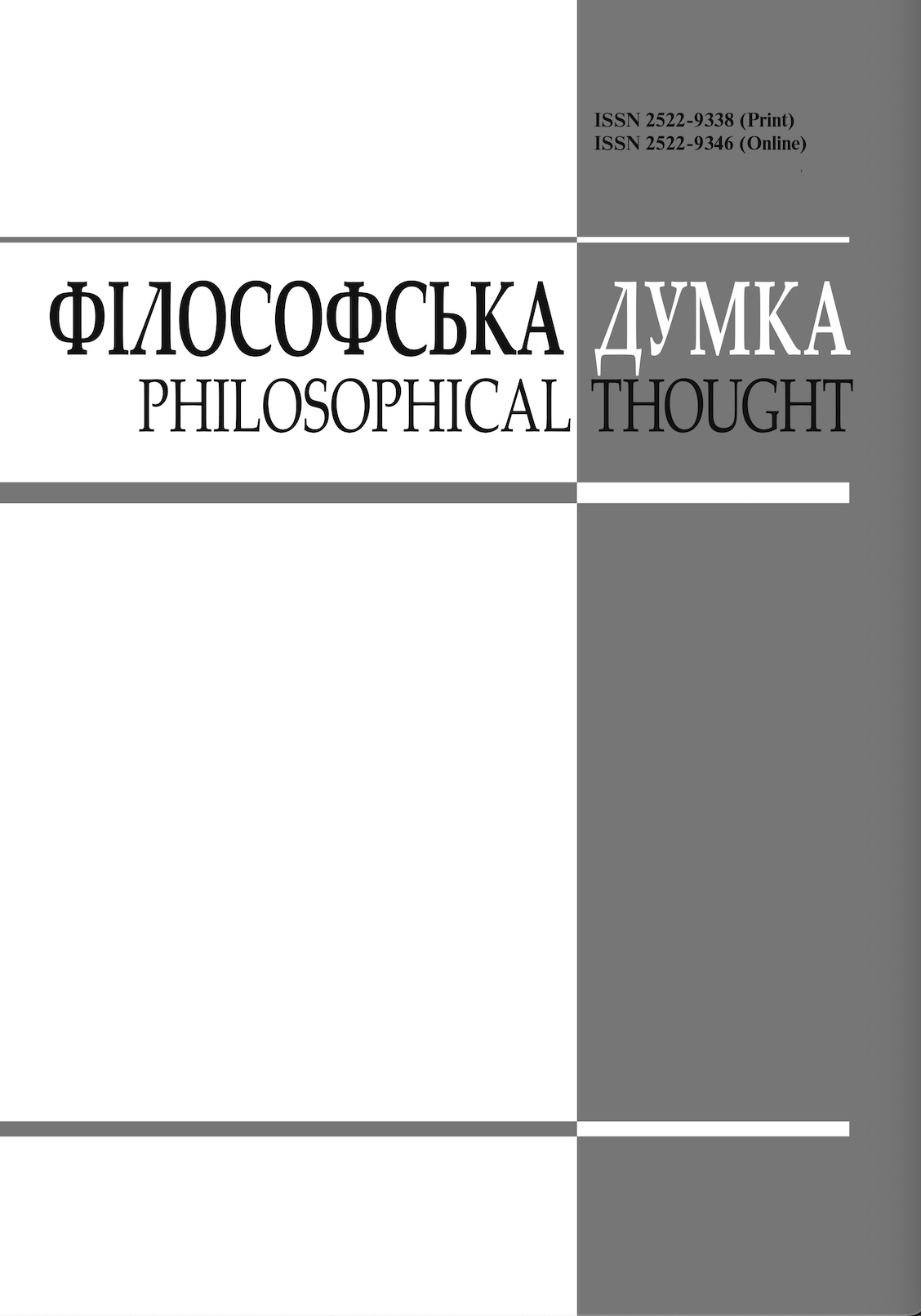The enlightenment: Kant's formula and modern narratives (second and third enlightenment)
Speeches
Keywords:
Immanuel Kant, Enlightenment, practical philosophy, reason, humanAbstract
This text is published as a sign of respect to the outstanding Ukrainian philosopher and world-class scientist Mariia Kultaieva, whose life was cut short under the terrible shelling of Kharkiv which deprived us of the invaluable opportunity to hear her speech at the international conference "Kant's Philosophy and the Challenges of Modernity".
In modern socio-cultural and political contexts, the relevance of the Enlightenment ideology, enriched by the philosophy and methodology of Immanuel Kant, is increasing. The great philosopher noted the importance of distinguishing between illusions and real perspectives, thanks to which the philosopher made a great contribution to the formation of modern secular society, emphasizing the role of reason and printed literature. Kantian philosophy became the pinnacle and at the same time a revision of the Enlightenment, ridding it of illusions, and his concepts and formulation of categorical imperatives still play an important role in the development of modern society. An assessment of Kant and his ideas in the context of the digital age opens up new possibilities for understanding his contribution to modern philosophy. The evolution of Enlightenment ideas in Kant’s philosophy shows him as a prominent "architect of the Enlightenment", defining the main trends of the development of Enlightenment ideas and revealing the pathologies of the Modern world that may arise in their implementation.
References
Adorno, Th., Horkheimer, M. (1987). Dialektik der Aufklärung. In: M. Horkheimer, Gesammelte Schriften. Frankfurt am Main: Fischer. Bd. 5, SS. 13-238.
Eckold, M. (2022). Kritik der digitalen Unvernünftigkeit. Warum unsere Gesellschaft auseinander knallt. München; Wien: Carl Auer Verlag.
Hampe, M. (2018). Die dritte Aufklärung. Berlin: Nicolai.
Hemel, U. (2020). Kritik der digitalen Vernunft. Freiburg; Basel; Wien.
Horkheimer, M. (1985). Kants Philosophie und die Aufklärung. In: M. Horkheimer, Gesammelte Schriften. Frankfurt am Main. Bd. 7, SS. 160-172.
Kant, I. (1998a). Grundlegung zur Metaphysik der Sitten. In: I. Kant, Werke in sechs Bänden. (Bd. IV, SS. 11-102). Darmstadt: Wissenschaftliche Buchgesellschaft.
Kant, I. (1998b). Kritik der praktischen Vernunft. In: I. Kant, Werke in sechs Bänden (Bd. IV, SS. 107-302). Darmstadt: Wissenschaftliche Buchgesellschaft.
Kant, I. (1998c). Beantwortung der Frage: Was ist Aufklärung? In: I. Kant, Werke in sechs Bänden (Bd. VI, SS. 53-61). Darmstadt: Wissenschaftliche Buchgesellschaft.
Hartmut, R. (2022). Demokratie braucht Religion. München; Wien: Kösel.
Sloterdijk, P. (2011). Kant. In: P. Sloterdijk, Philosophische Temperamente (SS. 64-69). München: Random House.
Downloads
-
PDF (Українська)
Downloads: 165
Published
How to Cite
Issue
Section
License
Authors who publish with this journal agree to the following terms:
- Authors retain copyright and grant the journal right of first publication.
- Authors are able to enter into separate, additional contractual arrangements for the non-exclusive distribution of the journal's published version of the work (e.g., post it to an institutional repository or publish it in a book), with an acknowledgement of its initial publication in this journal.
- Authors are permitted and encouraged to post their work online (e.g., in institutional repositories or on their website) prior to and during the submission process, as it can lead to productive exchanges, as well as earlier and greater citation of published work (See The Effect of Open Access).


